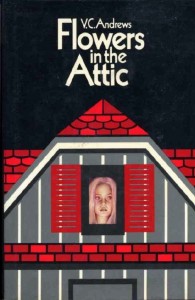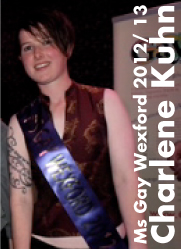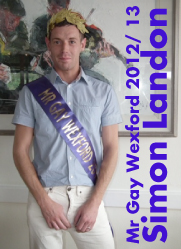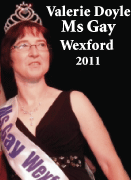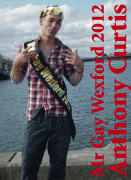.
Let’s talk
-
Recent Posts
- Wexford vigil for Sligo murder victims Aidan Moffitt & Michael Snee.
- Cover • Aidan Moffitt & Michael Snee
- Irish Prides 2019
- Irish Pride 2018
- Waterford Winter Pride Nov 23-26
- Irish Prides 2017
- Summer Solstice 2017• Personal Development • Health & Wellbeing • Day of Yoga
- Waterford Pride 2016 • November 17 – 20
December 2024 M T W T F S S 1 2 3 4 5 6 7 8 9 10 11 12 13 14 15 16 17 18 19 20 21 22 23 24 25 26 27 28 29 30 31 Follow Us
- No public Twitter messages.
-
Tag Archives: coming out
Visible Lives: Older LGBT people in Ireland

The morning of the 3rd of November 2011 saw the launch of Visible Lives (Full report / Key findings), a major new study identifying the experiences and needs of older lesbian, gay, bisexual and transgender people in Ireland.
Those surveyed were aged between 55 and 80 years, and gathered data from around 180 people across Ireland.
Some Key Findings
COMING OUT
35% still fear that friends will reject them if they tell them they are LGBT and
27% are afraid of harassment if people find out they are LGBT
- ■■Most participants went through the whole of their adolescence and early adulthood without disclosing their LGBT identity to anyone and without contact with other LGBT people.
- ■■Participants developed a range of strategies for concealing or hiding their LGBT identity including: cautiousness, discretion, developing divided lives, voluntary exclusion from parts of life, living a ‘straight life’ and even emigration.
“I would have known from a very early age of my orientation but I was cute [clever] enough. In actual fact, it made me very shy and very shrewd. I had the survival skills before I had the knowledge of anything else and I would have watched myself in every area of life and nobody would have known” (Gay Male, 70)
- ■■Participants knew on average at age 20 that they were LGBT, first came out to another person at age 31 and first socialised with LGBT people at age 33. The vast majority are out to at least one person but 7% have not told anyone they are LGBT.
- ■■While the vast majority are now very comfortable with their LGBT identity, 28% are not out to any of their neighbours and 10% are not out to any of their close family.
“You’re hiding all the time. You can’t come out with it. You don’t know what reaction you’re going to get” (Transgender Female, 55)
- ■■While coming out gave people greater freedom to be themselves, it also had varying consequences ranging from acceptance to denial to complete rejection. For some, coming out meant loss of relationships with parents, siblings, spouses, children and friends. Siblings, however, tended to react more positively and supportively, although in some cases siblings, too, rejected the person.
- ■■26% had been married and these participants faced immense difficulties in making the decision to come out to their spouse and children. Those who had children experienced deep struggles prior to coming out to their children and worried that their children would be stigmatised or discriminated against.
28% are not out to any of their neighbours,
10% are not out to any of their close family and 7% have not told anyone they are LGBT
AGEING AS AN LGBT PERSON IN IRELAND
46% live alone, 43% are single and 31% feel lonelier as they age
- ■■In keeping with international literature, the findings of this study support the view that a high percentage of older LGBT people live alone and are non-partnered. 53% are conscious of getting older all the time and 31% feel lonelier as they age.
- ■■Many face barriers to local and LGBT community involvement. Only 54% feel part of their local community and only 50% feel part of the LGBT community.
- ■■Participants worry about isolation and loneliness as they age, particularly those living in rural areas and for those who have not come out.
- ■■A major concern is that older age services will not recognise or respect their LGBT identity. Participants feel concerned that services might not protect their LGBT identity, respect their partners in decision-making or discriminate against them as LGBT people.
- ■■Almost one in four have received poor quality treatment when using healthcare services in Ireland. Of those, 40% consider their negative experience to be related to being LGBT.
“I might be in a relationship but if that doesn’t happen I would like to be in a community that would be supportive, where I didn’t have to hide who I was. I mean I couldn’t imagine being in a nursing home here where I couldn’t be myself…” (Lesbian Female, 56)
- ■■By far the most preferred option for older age accommodation is to live in their own homes. The least preferred option is to live in a nursing home. Some would prefer to live in an exclusively LGBT retirement community or an older age facility that is sensitive and respectful of LGBT needs.
- ■■Only 11% have written a living will and just one in four has given someone power of attorney. 48% have discussed their final wishes with someone and 62% have written a last will and testament.
- ■■Many participants prioritised the importance of determining, recognising and raising awareness of the needs of ageing LGBT people. They emphasised the importance of organisations being more overtly inclusive of older LGBT people.
- ■■Priorities identified for health and social care services included the need for services to be more inclusive, particularly for staff to be aware of and educated about issues for older LGBT people.
One in four are either just about getting by or are struggling financially
LIFE EXPERIENCES
One third are parents and 26% are or had been married
- ■■Half of all participants had been verbally insulted because they are LGBT and almost 20% had been punched or kicked because of their LGBT identity. 25% had been threatened with physical violence and 20% had people threaten to ‘out’ them. 16% experienced domestic violence in their relationships and 7% had experienced sexual violence.
- ■■50% report having no religion compared to only 2% of the general population of the same age. This may be largely attributed to the problematic and troublesome relationships with their Church that many described as the reason for leaving the Church and organised religion.
“Most of my younger life I attempted to be something that I wasn’t. I came to the point of getting married to a woman that was my best friend and I loved dearly and still love dearly, and for 20 years of that marriage we almost succeeded and for three years of that marriage we both went through hell, and the outcome of that situation [telling her] led to a separation about 10 years ago…Well, certainly I needed to do it [come out to wife]. Whatever was the driving force precisely or whatever the judgement of what I did might or might not come from, it was something for my own sanity I absolutely needed to do, but the trouble with it was that every inch of progress I made was another added difficulty for my best friend [wife], who was somebody that I loved very, very dearly. So often the coming out process is very healthy for the gay person; in this particular situation there’s a downside to it, as well as an upside to it, is the simple way of saying it” (Gay Male, 58)
- ■■42% stated they had received poor quality service from civic and community services because of their LGBT identity. The most frequently reported places with poor quality of service in the previous three years were: places of worship (14%), hotels and B&Bs (12%), restaurants and pubs (10%) and shops (7%).
- ■■26% of the survey participants are or had been married. One third are parents. 26% are divorced or separated from a person of the opposite sex.
Only 1 in 5 feel safe holding hands or showing affection with their same-sex partner in public
MENTAL HEALTH AND WELL-BEING
26% are not out to any of their healthcare providers, often because of fears of a negative reaction to their LGBT identity.
- ■75% report that their mental health is good or very good. 33% have had a mental health problem at some point in their lives and one in ten is currently taking prescribed medication for a mental health issue. Only 2% are using mental health services.
- ■■One in ten had seriously thought about ending their life at some time in their lives, while 5% have self-harmed in the past year. Participants’ suicidal and self-harm tendencies were associated with their struggles to come to terms with their LGBT identity or were as a result of the loss of a relationship after disclosing their LGBT identity.
- ■■82% are current alcohol drinkers, with nearly four out of ten consuming alcohol on a weekly basis. 14% are worried about their drinking and 17% drink five or more times a week. Participants report using alcohol to help them cope with shyness around their LGBT identity, to numb painful emotions and to give courage and boost confidence around coming out.
“Even if the health service is not homophobic I would think a very large percentage of the workers in it are not particularly well-informed or intuitive about gay ageing people’s rights” (Gay Male, 59)
- ■■Loss and grief was a significant part of participants’ lives. Nearly one in ten reported surviving the death of a partner or spouse of the same sex and described how their grief was not acknowledged in the same way the death of an opposite sex spouse would be – called disenfranchised grief.
- ■■For some, grief was a consequence of coming out, resulting in loss of contact with children, grandchildren, extended family, and consequently, the intergenerational support that other older people may receive as they age.
- ■■Only 1 in 3 believe healthcare professionals have sufficient knowledge about LGBT issues and only 43% feel respected as an LGBT person by healthcare providers. The lack of services and information on gender identity issues was also highlighted.
73% report good or very good physical health
DEVELOPING RESILIENCE AND COPING
79% report their quality of life as good or very good.
- ■■Despite many adverse experiences participants described an ability to move beyond the negativity, integrate their experiences and embrace their lives in a fulfilling manner.
- ■■There was a sense of pride among participants at being the first real generation of ‘out and older’ LGBT people. They rejoiced at their ability to be true to, or at ‘one with their authentic self’.
- “ We’re resilient…I think the way I’ve coped is about a sense of balance…You need a whole range of different ingredients…You need to mix the different elements to deal with it” (Gay Male, 64)
- ■■Accepting oneself as an LGBT person and remaining positive are critical internal sources of coping and resilience. Peer and professional support, and experiencing accepting relationships with family, friends and colleagues, are important external sources of resilience.
“I often think if I was to go back 15 or 16 years to the way I was, living in the environment I was living in…I was very unhappy…My health would give. I’d be completely stressed out; I couldn’t handle it. So today, I’m totally relaxed and I’d tackle anything. I have no problems and I just am who I am” (Transgender Female, 62)
- ■■LGBT friends are an extremely important source of resilience and coping as these friendships give many participants complete freedom to be themselves and discuss issues that they might not be able to discuss with their ‘straight’ friends.
- ■■For those who have come out to their children, being accepted by their children has helped them cope with rejection from partners, in-laws, other family members and friends.
- ■■Participants took pleasure and strength from seeing a younger generation of LGBT people live their lives in a more open context.
“We are the generation who are giving meaning to being ‘older LGBTs’, so there is challenge, adventure, a degree of excitement and surprise – and tremendous freedom!” (Survey participant)
Posted in Carlow, Elders
Tagged 2011, 3rd of November, 55 and 80 years, 55+, Bisexual, coming out, gay, Ireland, lesbian, older, Transgender, Visible Lives
Comments Off on Visible Lives: Older LGBT people in Ireland
Coming out to me 80’s
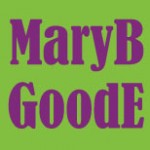
To begin with, I’d like to thank the contributer from Wexford for their story. For some the following story may have a familiar ring to it, even today. If so, I for one hope you’re not under the age of 25 by actual birth date. Under 25 in your imagination that, is another issue altogether. The following events occurred during the early 80’s. Today many teachers are more aware of the issues, though often tied by school protocol in what they can do.
I was in second year secondary school, an all girls, school for young ladies and sitting in the guidance councillor’s office. Miss B had been out of the room 15 minutes. We’d been taught don’t wait more than a 1/4 of an hour for anyone. The Religious Education room was across the hall & empty, I planned my escape.
How did I arrive at this point? The story began a few years before in fifth class, primary school. I’d met ‘Her’. ‘She’ was the most beautiful girl ever, only recently moved to Wexford. We had so much in common, music, art, yet! there was ‘one’ slight problem, even at that young age she was obsessed with boys. Kids developed faster in Gorey than Wexford, in those days.
First year of secondry school was a malestorm of activities, a time of change, coming to terms with me. Choir, swim training, singing, hockey, music, art, gymnastics and of course the new school curriculum, timetables. By second year I believed that the difference between me and my peers was greater than I’d thought. I liked girls. I sought more information. But where do I get it? Library? I went to the new school councillor Miss B.
There had been a change of criteria for councillors from strictly career guidance it now included the personal development of the girls. I’d arrived at my appointed time. I tried to explain how I felt isolated, I had a different outlook from the other girls. I really hadn’t the vocabulary for being gay, I explained about my friend, my feelings, the change in our relationship. Miss B asked, over and over, if I found myself crying for no reason. Half an hour into the session I saw an idea dawn on her. Suddenly she had urgent business & I was to wait there.
Having waited the fifteen minutes, I slipped over to the door. The passage was clear, about to scoot across the hall, I recognised a voice, two, no three. Miss B was at the top of the stairs, down the hall talking loudly to C & S, two girls from my class. Retracing my steps, horrible suspicions rolling around my head. Moments later, she returned. I made a number of excuses not to be there, I couldn’t get away fast enough.
Outside I was relieved not to see C & S and made a b line for the locker room. Almost there, when my name was called. I turned C had her best good samaratin face on, S was livid. A few expletives ran through my mind too, my sense of humor took over. I recognised someone with a crush & an exclusivity clause on their friend. Out of sheer devilment I said yes to their proposal, OK! I couldn’t think of a way to say ‘no’ without being offensive. Share lunches with them, ‘gooseberry much’ . It didn’t last long, I was a busy young woman. The councellor Miss B had decided I was friendless, with all my activities, seriously!. At the parent teachers meeting she proudly gave the details and her solution to my mother, who discussed the conversation with at least two more of my teachers and came to her own conclusions. In any case I didn’t get the information I needed then, educational though the experience was. Luckily I was a voracious reader & knowledge will out when required.
Flowers in the Attic is a 1979 novel by Virginia Andrews. Regarded as most unsuitable reading for young ladies at school in the 80's. It had been banned around the world & forbidden fruit.
‘Coming out’ again and again while in college I was told ‘it’s just a phase’. Another said ‘so & so’ and ‘so & so’ are gay too. One person was relieved it meant she wasn’t ‘loose’ because I’d shared a hotel room with her male friend to save money (students?) and didn’t sleep with him, where as she would have been all over him, go figure??.
The ‘coming out’ is mostly easy, but then I’ve known me a long time. Occasionally heart wrenching, at times gut wrenching and sometimes non voluntary. Until society learns not to assume everyone they meet is straight ‘coming out’ is a fact of life.
As for C & S well that is another story & not mine to tell.
Today in schools little has changed for LGBT students, they still have the feelings & the self knowledge. Teachers can’t help. On the upside they do however have the language, TV & the internet.
Here’s a thought. Name one lesbian icon from the 80’s? The 90’s had KD Lang, Martina Navratilova & Sandra Bernhard on & off ‘Roseanne’, Ellen DeGeneres.
Posted in Coming Out, Wexford, Youth
Tagged 'Roseanne', all girls, beautiful, coming out, Ellen DeGeneres, KD Lang, knowledge will out when required, LGBT students, Martina Navratilova, Primary school, Sandra Bernhard, second year, secondary school, thirteen years old
Comments Off on Coming out to me 80’s
Stage two: Aha!

Stage two: Aha! by David Clarke So, how do you know that you have moved from stage one to stage two, when coming out? Sometimes that’s not easy to tell because confusion can be such a persistent part of this … Continue reading
Posted in GYW, Youth
Tagged Bisexual, coming out, gay, lesbian, Transgender
Comments Off on Stage two: Aha!
Transgender Di-Mystified

Hi all my name is Vanessa Lacey and I am a Trans-Woman from Waterford. I have been asked by the editor of this newsletter to give some information on Transgender issues and I am delighted to be given this opportunity to do just that. It was suggested that … Continue reading
Posted in LGB&, Trans*
Tagged Clothes, coming out, Hair, Hormone Therapy, Make-up, suicide rate, Trans-Woman, Transgender, Waterford
Comments Off on Transgender Di-Mystified

 Follow
Follow